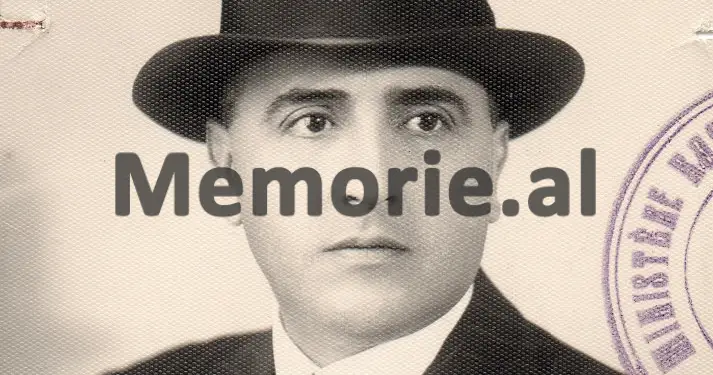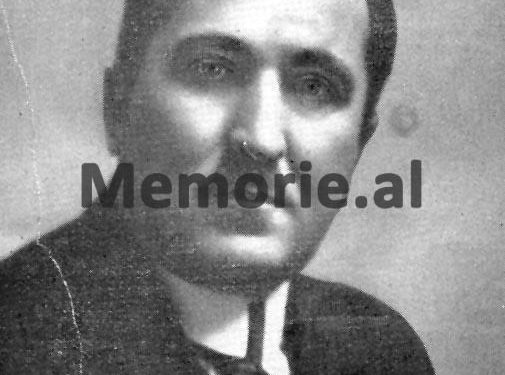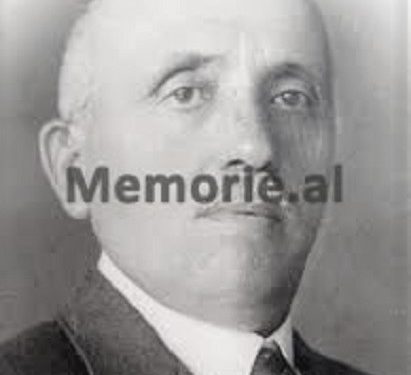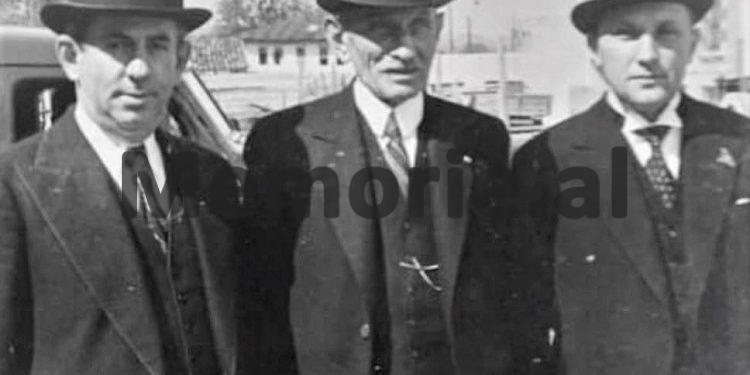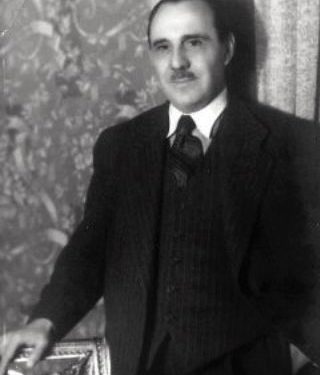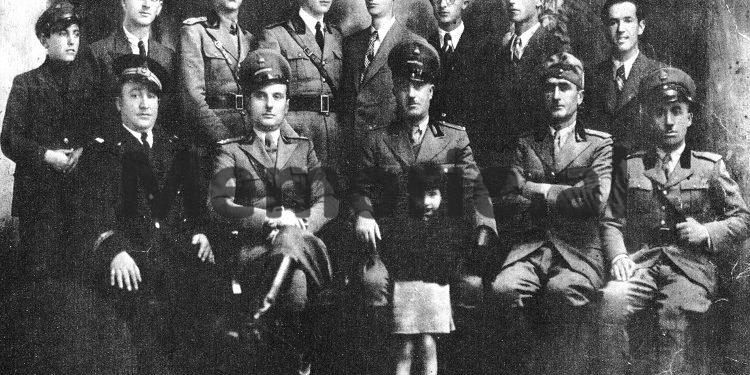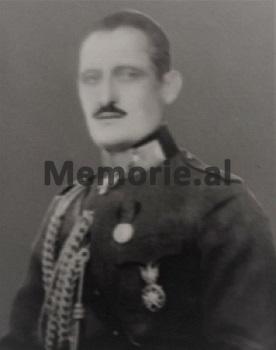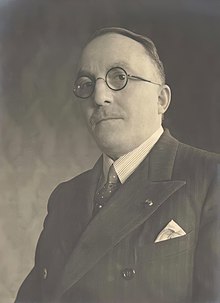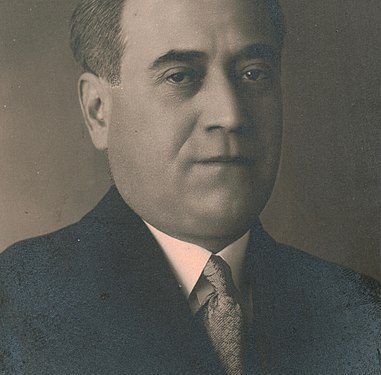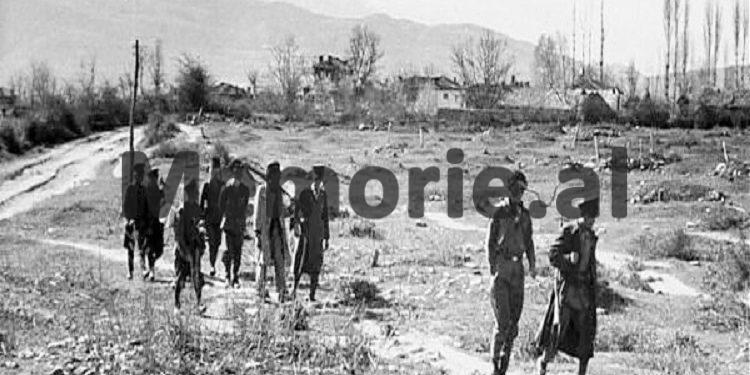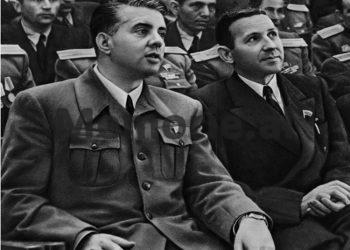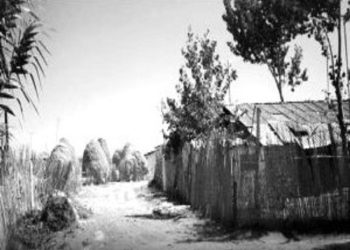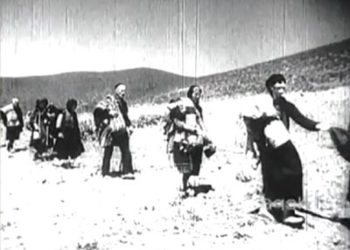By Hysen Selmani
Part thirteen
Memorie.al/ European and American press have often addressed the subject of the memories of the Albanian King, Zogu i-r, which he wrote and dictated during his exile from Albania. Considering the notes and syntheses that his assistant, Colonel Hysen Selmani, compiled over the years in his service, – always, next to the King of the Albanians, both at home and in exile, these notes, more or less with parts of detached, without strictly following the usual criteria of memoirs, and without having the definite, final form of an edition, they are prepared by Hysen Selmani himself, who has dedicated most of his life, as in Albania, as well as during the exile, serving the First Zog, the King of the Albanians.
Continues from last issue
Pogradec April 9 – 06.00 in the afternoon
The decision to leave Albania, presented to King Zog I by the National Assembly, in relation to the events of the day and the negative attitude of the neighboring countries, Yugoslavia and Greece, was rather not to give because of misplaced news, which was spread with the aim of fascism. This, that supposedly in Albania, a great uprising has broken out and the fascist forces are landing to extinguish this revolution. Also, on this day, the Greek Government, very pressured and scared by Mussolini and the Anglo-French allies who advised them to stay calm and not give cause for anger, because they had no guarantee, and this to save due to these dangers, they inform our Prime Minister Kotta, that they were forced to close the border, “and we inform you that, at 12 midnight of this date, the border will be closed”.
All these events, as well as having no opportunity to implement the plan decided for the defense of the Motherland and against your personal desire, as well as on the basis of the “Basic Statute of the Albanian Kingdom”, it was decided to accept the decision of the National Assembly , to get out of the Albanian land.
King Zog I, at the same time, ordered the commander of the National Defense, General Xhemal Aranitas, as well as the Commander-in-Chief of the Gendarmerie, Colonel Shefki Shatku, that even the few forces that were left in different lines, resisting against the enemy , retreat to the mountains. Within those areas that were designated, provisionally and in the form of detachments, it is possible not to stop the war against the occupier, until the moment when the general European war begins. Since King Zog had the full conviction that before the year was over, the Second World War would break out, which was desired to happen at that time and no matter how few our troops were, without stopping the resistance.
After that, King Zog I gathered the Government together with the Parliament under His presidency and explained in detail the world situation, how it stands and the quick actions of the dictators, Hitler and Mussolini. “For the first time, the King said – the entire Balkans will be occupied by fascist forces. Likewise, Poland, Romania, Bulgaria and Hungary, sometimes by force, sometimes by friendship, will be occupied by German forces, which are prepared so heavy, that it does not occur to the mind. But, in the occupation of Poland, neither Great Britain nor France will remain neutral. Immediately, they will be at war against Germany and against Italy that these great states, have understood well, everything that is desired by Nazi-fascism, as well as in their decisions.
And, with full certainty, I am telling you that: Nazi-fascism has lost the war, one hundred percent. That their reserves are what they are telling us today. When they run out of these, they will no longer be able to withstand the large and inexhaustible material of the Anglo-French sanctions, whose reserves are increasing day by day. As for these, they are running out every day, and this is completely safe. But we, today, are falling victim to the ruthlessness and masculinity of these dictators”.
“This was the decision, said the King – that it was foreseen to resist for at least six months in the mountainous regions of Albania and with few forces and few weapons. Only that the resistance, do not wait, waiting for the favorable time to open fire, throughout the Balkans and Europe. That way, we would be inside them, where then our Neighbors, who today are acting as indirect allies of fascism, would beg us to be allies, against the common enemy, and this is Sure.
That if Yugoslavia had not prevented us, we would not have changed the first plan. And, since today we would be gathered, as the Parliament and the Government, all other functions in Mat. Where there, we would be perfectly able to develop, all military and diplomatic attempts. Likewise, in terms of food, we would have the support of the people of Mat-Dibër-Mirditë of Kosovo, and of course also from other countries, all over Albania. These, which I explained to you, are related to our emigration, within those countries, that we will have the support and friendly relationship, that today, Greece does not allow us to stay on its land, but for the first time, we will install in Turkey, that it does not even consider fascism”.
Pogradec April 9, 1939 – 2 pm
King Zog I, at this hour 2 in the afternoon, recalls the adjutant – together with the Government and the Parliament and a large majority of officers and employees, left Pogradec and went to Zemblak. He stayed there for a long time. Afterwards, he sent Prime Minister Kotta, the Minister of Internal Affairs, Musa Juka, the National Defense Commander, General Xhemal Aranitas, Colonel Hysen Selman, the Commander of the Gendarmerie, Colonel Shefki Shatku, as well as the Prefect of Korca, Veli Vasjarin, back to Korça. These were ordered to do their best, to get in contact with the forces of, especially the Beylik of Elbasan and Berat, as well as those of Ali Riza.
Meanwhile, these forces were being withdrawn to Vithkuq, Skrapar, Ternove and Mokër, which eventually had 3 battalions of soldiers and 2 mountain batteries 65/17, and two Radio R.3 stations. This battalion of gendarmes, that of Major Mahmut Golem and Major Xhafer Shkambi, if there is an opportunity, to connect with these forces, to be ordered quickly, to withdraw to these lines, as far as Colonel Ali Riza is concerned Topallit, he is ready, with two battalions of the Border Guard.
“And, if you have this opportunity, – said the King – to secure you with these guilds, and agree to withdraw to these places, I am not in a hurry to to leave the Albanian land today. That if I secure these places, here we can form a line of resistance, that with this side, we are able to make resistance in other places as well, for example, in Mat, Dibër Thus, we send Colonel Husein Selmani, Colonel Fiqri Dinen, with a majority of officers and the Kreshniks, although a large part, have passed to Yugoslavia, but that does not stop us.
At the same time, Prime Minister Kotta should talk once again with the Greek Prime Minister, Metaksain, about this plan of resistance, which is also very much in favor of Greece, and if these attempts are fixed, we will stay here. The Minister of the Interior, if possible, gets in touch with the Prefectures, which are still functioning”.
At 4 o’clock in the afternoon, on the same date, Prime Minister Kotta returned with everyone else from Korça, without any results. They have not been able to get in touch with any department, also the Greek Prime Minister, Metaksai, very worried, informed them that: “As we have informed you, today, at 12 o’clock at night, the border closes. And as for this time, we cannot help them in any way, not even morally”.
After that, in a long conversation with the National Assembly, they decided to leave the Albanian land and go to Kapshtica, King Zog, the Government, the Parliament, a majority of officers, as well as a majority of employees.
Kapshtica, April 9, 1939, 7 pm
When they arrive at the post office of Kapshtica, His Majesty, King Zog I, stood up and looked longingly at the Albanian land. He respectfully ordered to lower the National Flag and kissed it, took it with him, and at this time, crossed the Albanian border.
Follorin, April 10, 1939 – 2 am
“When we entered the Greek border, a colonel and a Greek major were waiting there, with a company of soldiers in honor. They immediately followed King Zog’s car, with cars and motorcycles, to Folloria. But the road was covered with snow, although they had discovered it enough with workers. There were hardly any cars marching, no more than 20 kilometers per hour, when they reached Follorina, it was 1 o’clock after midnight. When we arrived at Follorina, although it was late, and very cold, but the N/prefect of Follorina , with all the civil and military authorities of Follorina, as well as a large part of the people, were waiting for His Majesty, Zog I, the King of the Albanians, at the entrance to the city. As soon as the King arrived, the adjutant recalls – the people shouted: “Long live King Zog”, and “Down with Fascist Italy”, etc. And the N/Prefect appeared before the King and made you available. The King got off the car and was walking, thanking the people, accompanied by the N/Prefect, the colonel who was also us. And the government and the Parliament, almost all the personnel, were more than 2000 people. They went to the hotel lounge where the Queen had fallen.
Of course, it was a small hotel and the King entered the hotel lounge, together with the Government and a part of the deputies and the N/Prefect Follorina, after thanking the N/Prefect. The latter told Prime Minister Kotta to talk to him, to book a train for Thessaloniki, so that we could leave immediately, within 10 o’clock that day. After the N/Prefect, together with the Prefect of Korça, Veli Vasjar, left to book a train for Thessaloniki, so that it would be ready at 10 o’clock on April 10, 1939, the King left the Prime Minister in the salon and rode a little to see the Queen and the Prince. Yes, the Queen was quite tired.
She didn’t even stay 20 minutes and came to the salon. Meanwhile, the people shouted: “Down with Fascist Italy”. At this time, the police stopped him for mentioning Italy. King Zog ordered Prime Minister Koço Kotta to get in touch with Greek Prime Minister Metaksain, informing him that the King wants to leave immediately for Thessaloniki, as well as to thank him for all the friendly receptions of the N/prefect and the authorities of the people of Follorina and said: “Tell him openly that, from now on, if the Greek situation allows, do you want us to stay in Greece, freely with diplomatic rights, or will we go to some other country”?
Kozan, April 10, 1939, 2 p.m. of this date
At 14:00 on this day, the Prime Minister of Greece, Metaksai, replied to the Prime Minister of Albania, Koço Kotta, with these words: “Please give my most tangible respects to His Majesty, King Zog. You see the condition we are in, but according to Your Majesty’s wish, you will be stopped in Larissa, with all the personnel you have with you. You are friends and free as you want. And don’t worry about a mistake that was made without the Government’s knowledge. At the same time, we ordered the Prefect of Kozan to pay all the respects to King Zog I”.
Prime Minister Kotta, together with the Minister of Foreign Affairs, Ekrem Libohova, came and presented them to King Zog. Before the prime minister finished his words, the Governor of Larissa came and asked to appear before King Zog. The king immediately accepted it, having Prime Minister Kotta and Foreign Minister Libohova by his side. The Governor presented to the King, the honors of the Hellenic Government and begs you, that in Greek land, you are like in your second Homeland. “Order in Larisa”, – of course in Larisa, all the hotels had arranged.
So, together with the Governor, we left for Larisa. When we arrived in Larisa, there at the station, they had brought a battalion of soldiers, for honors, as well as all the authorities, civil and military of Larisa, also different people were waiting for King Zog. When the train stopped, the King and Queen, accompanied by the Governor, got off the train and greeted all the authorities. He passed the military magazine and returned to the people, giving thanks. They shouted: “Long live King Zog e, long live Albania and its brave people”!
From the station, we headed to the hotel, which was reserved for the King and the Royal family. Accompanied by the Governor, the King entered the hotel lounge, along with Prime Minister Kotta e, with the Government. There, the King talked a little with the Governor and charged him to thank the Hellenic Government, a neighbor and friend. As for King George and Prime Minister Metaksai, he sent you a telegram each. In the hotel, everyone was arranged in order: the Government, the Parliament, the Council of State, all the officers, employees and soldiers. All were completely free. Only one bad thing was there, because the Albanian paper currency was not recognized; only the gold one was recognized, therefore the Government was forced to adjust the personnel.
Larisa April 12, 1939
The Albanian Royal Government, under the chairmanship of Prime Minister Kotta, withdrawn from the war with Italy in Larisa, met to discuss the situation of personnel located in Greece and Yugoslavia, withdrawn from the war. This is to help you with food and housing, from the money withdrawn from the state treasury, on April 7, 1939, until some way was found for their adjustment. The Minister of Royal Albanian Finance, Kolë Thaçi, presented to the Ministerial Council, the overview of the amount withdrawn on April 7, 1939, from the State coffers, as well as the breakdowns, about the withdrawal as noted:
Amount withdrawn from the treasury: on April 7, 1939
- Napoleon gold. (023,000)
- Napoleon paper (040.000)
Spent in Tirana, April 7, 1939:
- Napoleon gold. (000,000)
- Napoleon letter. (001.000)
Spent in Kapshtica, April 10, 1939:
- Napoleon gold. (000,000)
- Napoleon paper (008.000)
Left in the box:
- Napoleon gold. (023,000)
- Napoleon paper (031.000)
This was the amount that the Minister of Finance, Kol Thaçi, had withdrawn on April 7, 1939, from the State coffers, by order of the Ministerial Council.
This overview was presented in Larisa, on April 13, 1939, Minister of Finance Kol Thaçi
The Ministerial Council, after studying the overview presented by the Minister of Finance, Col. Thaçi, decided to form a commission to compile the personnel lists, as well as the assignment of aid, so that it can face the situation with food and housing. This, for how long, until we have the opportunity to arrange your living, where they have to stay.
Commission to regulate payments
- Chairman: Minister of Finance, Kol Thaçi
- Member: Speaker of the Parliament, Hiqmet Delvina
- Member: Minister of Education, Abdurrahman Dibra
- Member: Colonel for the Army, Hysen Selmani
- Member: President of the State Council, Mirash Ivanaj
- Secretary of the Ministerial Council, Stavri Stavro
The Commission, according to the decision of the Ministerial Council, immediately compiled the personnel lists in Greece and Yugoslavia. This is as far as it was known, that the personnel is increasing day by day, especially in Yugoslavia. The assignment of the amount that was required to be given to you was compiled. And then, he presented to the Ministerial Council for approval:
The amount contained in the commission list:
Personnel in Larisa
- Napoleon gold. (009,000)
- Napoleon paper (000,000)
Personnel in Follorina
- Napoleon gold. (002.000)
- Napoleon paper (000,000)
Personnel in Yugoslavia
- Napoleon gold. (003.000)
- Napoleon paper (000,000)
Amount to be distributed:
- Napoleon gold. (014,000)
- Napoleon paper (000,000)
Larisa, on April 14, 1939
The Ministerial Council, after carefully studying the lists of personnel, together with the specified amount presented by the commission, although they seemed excessive, especially in gold, where it provided for the payments for 6 months, the Royal Legations in Paris, Turkey, Egypt and eventually and others, but finding no means of saving, he accepted and certified the payment.
- Prime Minister Koço Kotta
- Speaker of the Parliament Hikmet Delvina
- Minister of Justice Faik Shatku
- Foreign Minister Ekrem Libohova
- Minister of Finance Col. Thaçi
- Minister of the Interior Musa Juka
- Minister of Agriculture Rrok Gera
- Minister of Education Abdurrahman Dibra
- President of the State Council, Mirash Javaneu
- Secretary of the Ministerial Council, Stavro Stavri
The Ministerial Council, including the Speaker of the Parliament as well as the Speaker of the State Council, confirmed that; to make the payment presented by the commission, from the amount of gold napoleons, 0014,000 (fourteen thousand) gold napoleons, withdrawn on April 7, 1939, from the state treasury. Memorie.al
Larisa April 14, 1939 Secretary of the Ministerial Council
Stavri Stavri d.v
The next issue follows




